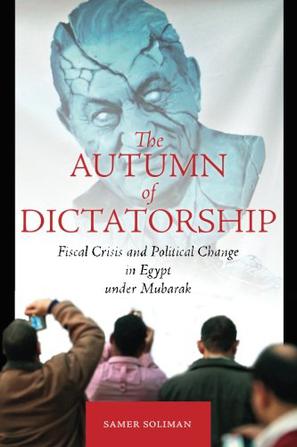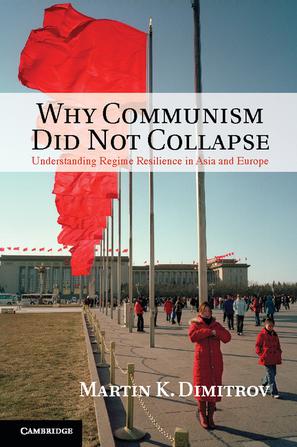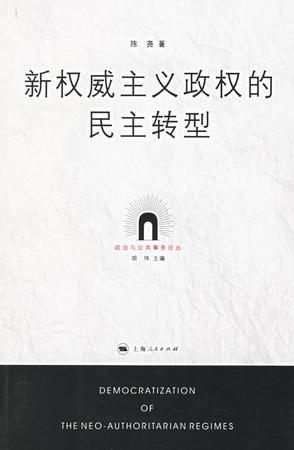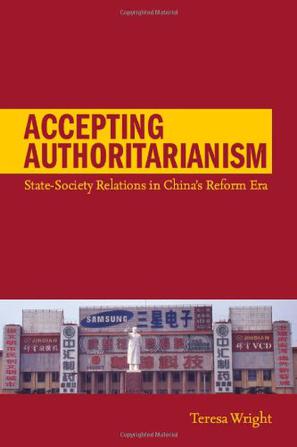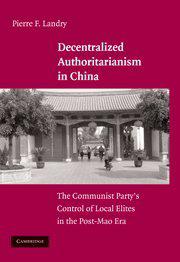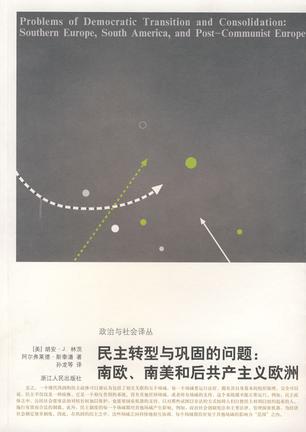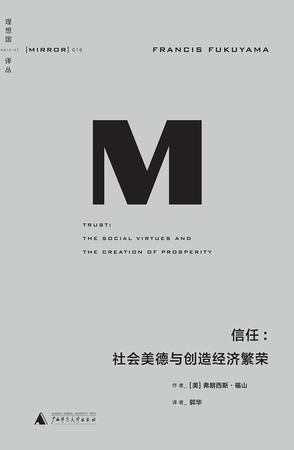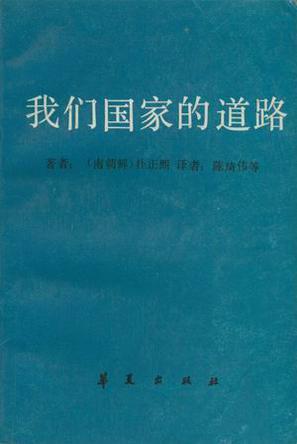欢迎来到相识电子书!
标签:威权主义
-
The Autumn of Dictatorship
The Egyptian protests in early 2011 took many by surprise. In the days immediately following, commentators wondered openly over the changing situation across the Middle East. But protest is nothing new to Egypt, and labor activism and political activism, most notably the Kifaya (Enough) movement, have increased dramatically over recent years. In hindsight, it is the durability of the Mubarak regime, not its sudden loss of legitimacy that should be more surprising. Though many have turned to social media for explanation of the events, in this book, Samer Soliman follows the age-old adage—follow the money. Over the last thirty years, the Egyptian state has increasingly given its citizens less money and fewer social benefits while simultaneously demanding more taxes and resources. This has lead to a weakened state—deteriorating public services, low levels of law enforcement, poor opportunities for employment and economic development—while simultaneously inflated the security machine that sustains the authoritarian regime. Studying the regime from the point of view of its deeds rather than its discourse, this book tackles the relationship between fiscal crisis and political change in Egypt. Ultimately, the Egyptian case is not one of the success of a regime, but the failure of a state. The regime lasted for 30 years because it was able to sustain and reproduce itself, but left an increasingly weakened state, unable to facilitate capitalist development in the country. The resulting financial crisis profoundly changed the socio-economic landscape of the country, and now is paving the way for political change and the emergence of new social forces. -
The New Authoritarianism in Latin America
While one of the most important attempts to explain the rise of authoritarian regimes and their relationship to problems of economic development has been the "bureaucratic-authoritarian model," there has been growing dissatisfaction with various elements of this model. In light of this dissatisfaction, a group of leading economists, political scientists, and sociologists was brought together to assess the adequacy; of the model and suggest directions for its reformulation. This volume is the product of their discussions over a period of three years and represents an important advance in the critique and refinement of ideas about political development. Part One provides an overview of the issues of social science analysis raised by the recent emergence of authoritarianism in Latin America and contains chapters by David Collier and Fernando Henrique Cardoso. The chapters in Part Two address the problem of explaining the rise of bureaucratic authoritarianism and are written by Albert Hirschman, Jose Serra, Robert Kaufman, and Julio Coder. In Part Three Guillermo O'Donnell, James Kurth, and David Collier discuss the likely future patterns of change in bureaucratic authoritarianism, opportunities for extending the analysis to Europe, and priorities for future research. The book includes a glossary and an extensive bibliography. -
Why Communism Did Not Collapse
This volume brings together a distinguished group of scholars working to address the puzzling durability of communist autocracies in Eastern Europe and Asia, which are the longest-lasting type of nondemocratic regime to emerge after World War I. The volume conceptualizes the communist universe as consisting of the ten regimes in Eastern Europe and Mongolia that eventually collapsed in 1989–91, and the five regimes that survived the fall of the Berlin Wall: China, Vietnam, Laos, North Korea, and Cuba. Taken together, the essays offer a theoretical argument that emphasizes the importance of institutional adaptations as a foundation of communist resilience. In particular, the contributors focus on four adaptations: of the economy, of ideology, of the mechanisms for inclusion of potential rivals, and of the institutions of vertical and horizontal accountability. The volume argues that when regimes are no longer able to implement adaptive change, contingent leadership choices and contagion dynamics make collapse more likely. By conducting systematic paired comparisons of the European and Asian cases and by developing arguments that encompass both collapse and resilience, the volume offers a new methodological approach for studying communist autocracies. Offers a new theoretical explanation of the resilience of communist autocracies that emphasizes the structural conditions under which these regimes are able to implement adaptive change Offers a new methodological approach for studying communist autocracies by conducting paired comparisons between the ten regimes that eventually collapsed in 1989�91 and the five regimes that survived past 1989: China, Vietnam, Laos, North Korea, and Cuba Makes a major empirical contribution to our knowledge of how communist autocracies function by: 1) adopting a global perspective onto the phenomenon of global communism; 2) analyzing unfamiliar adaptations, such as the development of institutions of accountability; and 3) using new evidence to challenge existing interpretations of communist durability (especially for countries like China, Vietnam, and North Korea) and of the eventual collapse of communist regimes in Eastern Europe and in Mongolia -
Democracy and Authoritarianism in the Postcommunist World
This volume brings together a distinguished group of scholars working on Eastern Europe and the former Soviet Union to examine in depth three waves of democratic change that took place in eleven different former Communist nations. Its essays draw important conclusions about the rise, development, and breakdown of both democracy and dictatorship in each country and together provide a rich comparative perspective on the post-Communist world. The first democratic wave to sweep this region encompasses the rapid rise of democratic regimes from 1989 to 1992 from the ashes of Communism and Communist states. The second wave arose with accession to the European Union (from 2004 to 2007) and the third, with the electoral defeat of dictators (1996 to 2005) in Croatia, Serbia, Georgia, and Ukraine. Although these three waves took place in different countries and involved different strategies, they nonetheless shared several overarching commonalities. International factors played a role in all three waves, as did citizens demanding political change. Further, each wave revealed not just victorious democrats but also highly resourceful authoritarians. The authors of each chapter in this volume examine both internal and external dimensions of both democratic success and failure. 1 Contains a unique group of country cases, with each chapter presenting new empirical data and analysis 2 Tightly organized around the causes of transitional successes and failures 3 Both North American and in-country experts are included in the distinguished list of authors -
Competitive Authoritarianism
Review "This landmark contribution to the comparative study of political regimes will be widely read and cited. In an epic act of theoretical synthesis, Levitsky and Way weave careful empirical research on three-dozen countries across five world regions into a convincing account of patterns of regime change. In distinguishing democratic transitions from a range of authoritarian outcomes, they reach nuanced conclusions about the relative explanatory influence of international factors (linkage and leverage) and domestic power politics (rulers versus oppositions). Above all, they help us understand how autocrats learn to live with elections. Strongly recommended." - Michael Bratton, University Distinguished Professor of Political Science and African Studies, Michigan State University "This is a brilliant and truly pathbreaking book that should be closely studied by any serious student of democracy or comparative politics. Its precise conceptualization, striking theory, rigorous comparative methodology, and breathtaking range of case study evidence distinguish it as the most important study of political regimes and regime transitions in a generation." - Larry Diamond, Stanford University "Competitive Authoritarianism establishes Steven Levitsky and Lucan Way as the Juan Linz and Alfred Stepan of their generation. In the tradition of Linz and Stepan, Levitsky and Way offer an abundance of theoretical and conceptual innovation as well as a trove of empirical material drawn from broad swaths of the globe. The book is as elegantly written as it is theoretically creative. It is written by and for professional social scientists; yet undergraduates and the attentive public will be able to digest the book's central argument and findings with ease. This is what social science should look like." - M. Steven Fish, University of California, Berkeley "This is the most anticipated book in comparative politics in more than a decade. Written in a single authorial voice, Levitsky and Way's arguments about the distinct trajectories of competitive authoritarian regimes are theoretically grounded, conceptually nuanced, geographically wide ranging, and empirically well supported. I expect this book to have a major impact on the field for many years to come." - Marc Morjé Howard, Georgetown University "Levitsky and Way's book makes two major contributions to research on political regime change. First, by developing the notion of competitive authoritarianism, it engages in a sustained effort to provide a clear and theoretically fertile conception of a particular subset of political regimes belonging to the vague class of 'hybrid' regimes. Second, it offers the as yet most sophisticated and subtle effort to interweave domestic and international explanations of political regime change with provocative implications for run-of-the-mill theories, whether based on economic development, inequality, or institutions." - Herbert Kitschelt, Duke University "Regimes that blend meaningful elections and illicit incumbent advantage are not merely resting points on the road to democracy; Levitsky and Way guide us along the multiple paths these regimes can take and provide powerful reasoning to explain why nations follow these distinct paths. This deeply insightful analysis of an important subset of post-Cold War regimes is conceptually innovative and precise, empirically ambitious, and theoretical agile, moving fluidly between international and domestic causes of regime dynamics. Read it to understand the dynamics of contemporary hybrid regimes; then read it again to appreciate its many lessons for our general understanding of regime change." - David Waldner, University of Virginia Product Description Competitive authoritarian regimes - in which autocrats submit to meaningful multiparty elections but engage in serious democratic abuse - proliferated in the post-Cold War era. Based on a detailed study of 35 cases in Africa, Asia, Latin America, and post-communist Eurasia, this book explores the fate of competitive authoritarian regimes between 1990 and 2008. It finds that where social, economic, and technocratic ties to the West were extensive, as in Eastern Europe and the Americas, the external cost of abuse led incumbents to cede power rather than crack down, which led to democratization. Where ties to the West were limited, external democratizing pressure was weaker and countries rarely democratized. In these cases, regime outcomes hinged on the character of state and ruling party organizations. Where incumbents possessed developed and cohesive coercive party structures, they could thwart opposition challenges, and competitive authoritarian regimes survived; where incumbents lacked such organizational tools, regimes were unstable but rarely democratized. -
Totalitarian and Authoritarian Regimes
Originally a chapter in the Handbook of Political Science, this analysis develops the fundamental destinction between totalitarian and authoritarian systems. It emphasizes the personalistic, lawless, non-ideological type of authoritarian rule the author calls the sultanistic regime. -
Transitions from Authoritarian Rule, Vol. 4
Review "The essays appearing in the collection 'Transitions from Authoritarian rule'...will serve as reference points for students of redemocratization for years to come. Other essays will serve as classic case studies...the volumes deserve to be read time and again."--Nancy Bermeo, 'Comparative Politics' Review "The essays appearing in the collection Transitions from Authoritarian rule... will serve as reference points for students of redemocratization for years to come. Other essays will serve as classic case studies... the volumes deserve to be read time and again." -- Nancy Bermeo, Comparative Politics -
新权威主义政权的民主转型
20世纪70年代中期兴起的全球范围向民主的转型,标志着民主事业在人类政治文明发展进程中迈出了关键一步。
绝大多数有关这一时期民主化原因的研究均归结于外力或政治之外因素的作用,比如国际力量的推动、经济结构危机、邻国的示范效应,即使极少数学者从政治本身出发,也只是从精英选择的角度分析,很少有学者将研究的重点放在政治体制和政权内部结构。按照马克思主义的观点,这些研究方法忽视了社会活动的基本规律,即任何事物在其发展进程中,变革的决定性因素在于内部而不是外部,换言之,事物的发展取决于内因而不是外因。因此,政治变革中的民主化的根本原因在于前民主化政权内部结构的问题,本书正是从这一角度出发,研究新权威主义政权内部的结构变化所导致的民主转型。
本书分为七个部分。
第一章为引论。分析了选题的原因、研究方法和研究所要注意的几个方面。在20世纪末的民主化背景下,人们对新权威主义政权的转型认识是模糊的,对新权威主义政权的发展历程及其历史命运难以把握。理论上的模糊也使得政治精英们的选择失去了方向,从而使政治变迁显得扑朔迷离,政治现代化的进程充满艰难。如何理解新权威主义政权转型的根本动因,是本书尝试进行解释的。关于新权威主义政权的研究在理论上主要有两个来源:比较研究方法和政治发展理论,对此本书作了简单的回顾。此外,这一部分还对研究所注意的几个方面进行了简要提示。
第二章为概念与理论。对权威主义、新权威主义的概念进行了梳理,并从两个维度——意识形态和政权形态分析了权威主义的表现形态。
第三章分析了新权威主义政权的兴起。新权威主义政权是现代化进程的产物,是现代化进程中制度变迁在政治结构体制上的反应,这种反应受到了殖民主义的历史、前现代化的经济结构、政治文化传统等因素的重要影响,同时也受制于社会发展过程中的即时事件的作用。发展中国家进行了制度容纳的尝试,包括多元民主体制、形形色色的社会主义体制及寡头或军人政权,但大多不成功。在工业化进程及其带来的社会、经济危机的冲击下,少数发展中国家最终选择了新权威主义体制。
第四章分析了新权威主义政权的结构及结构性危机。结构是研究政治的一个关键性变量。新权威主义政权内部存在两种结构:专制结构和同意结构。专制结构主要由行政首脑及行政机构、军队、技术官僚和政党组成。同意结构则由代议机构、利益集团、公共舆论和社会运动组成。新权威主义政权中专制结构和专制权力占据了主导地位,同意结构和同意权力很少或几乎不发挥作用,政权主要依靠强制、镇压、说服来维持社会秩序和推动经济增长。现代化发展和社会变迁导致新权威主义政权内部的专制结构和同意结构之间形成了一种张力,这种张力是新权威主义政权不稳定的根源。新权威主义政权试图建立各种协调机制缓解张力,但政权的性质决定了专制结构的地位不可能被取代,从而也就决定了政权不可避免地走向危机。
第五章围绕新权威主义政权的有效性和合法性展开论述。新权威主义政权的结构性危机并不导致其即刻的解体,政权的有效性在一定程度上维护了政权的生存。新权威主义政权的有效性来源于其对经济发展的推动作用。通过对政治结构与经济发展之问关系的考察,本书认为,政治发展与经济发展之间并没有简单、直接的逻辑关系,新权威主义政权相对于其他发展中国家取得了较大的经济发展成就,不在于其经济发展战略或政策的合理,而在于政权的能力。经济绩效在一定程度上维护了政权的合法性,但有效性不等于合法性,现代化发展到了一定时期,政权的有效性也就无法满足社会对政权合法性的要求。这种外部因素仍然不能克服政权结构本身内在的结构性危机。
第六章描述了新权威主义政权在“第三波”民主化浪潮中的解体。新权 威主义政权的结构性危机在内部和外部因素的推动下终于全面爆发,在体制上逐步向民主转型。但是,由于大多数转型是外部力量的推动或政治精英的主动选择,因此转型后面临着政治体制的巩固问题。如何巩固民主体制是新权威主义政权在转型之后必须应付的重大挑战。
最后一部分分析向民主转型后的新生民主政权在巩固民主制度方面的努力,以及这些政权在民主制度巩固过程中受到的影响因素,包括社会经济因素、政治传统、转型的方式、情境问题以及具体民主制度的选择等。不同的影响因素对转型后的民主政权的巩固产生了不同的作用。尽管有少数国家仍然处于转型后的动荡之中,但大多数政权在转型之后基本上坚持了下来。
至今为止,新权威主义政权在民主道路上尽管艰难,但却始终朝向民丰的目标前行。 -
Accepting Authoritarianism
Why hasn't the emergence of capitalism led China's citizenry to press for liberal democratic change? This book argues that China's combination of state-led development, late industrialization, and socialist legacies have affected popular perceptions of socioeconomic mobility, economic dependence on the state, and political options, giving citizens incentives to perpetuate the political status quo and disincentives to embrace liberal democratic change. Wright addresses the ways in which China's political and economic development shares broader features of state-led late industrialization and post-socialist transformation with countries as diverse as Mexico, India, Tunisia, Indonesia, South Korea, Brazil, Russia, and Vietnam. With its detailed analysis of China's major socioeconomic groups (private entrepreneurs, state sector workers, private sector workers, professionals and students, and farmers), Accepting Authoritarianism is an up-to-date, comprehensive, and coherent text on the evolution of state-society relations in reform-era China. -
Populist Authoritarianism
Populist Authoritarianism as an original theoretical framework in understanding authoritarian regimes in general and the dynamics of Chinese politics in particular. The range of public opinion surveys used in the book is unprecedented. Few researchers possess the historical and scientific evidence that allow them to compare change of public opinion A balanced and nuanced discussion about one of the most popular governments in the world that feels paranoid in a political environment that does not provide institutional guarantee for regime stability -
Popular Support for an Undemocratic Regime
To survive, all forms of government require popular support, whether voluntary or involuntary. Following the collapse of the Soviet system, Russia's rulers took steps toward democracy, yet under Vladimir Putin Russia has become increasingly undemocratic. This book uses a unique source of evidence, eighteen surveys of Russian public opinion from the first month of the new regime in 1992 up to 2009, to track the changing views of Russians. Clearly presented and sophisticated figures and tables show how political support has increased because of a sense of resignation that is even stronger than the unstable benefits of exporting oil and gas. Whilst comparative analyses of surveys on other continents show that Russia's elite is not alone in being able to mobilize popular support for an undemocratic regime, Russia provides an outstanding caution that popular support can grow when governors reject democracy and create an undemocratic regime. -
Political Institutions Under Dictatorship
Review "This book represents a major contribution to the resurgent study of non-democratic regimes. It is one of the first substantial pieces of modern social scientific analysis of the phenomenon, skillfully combining formal and quantitative cross-national analysis with country case studies. It will have a major impact in the study of modern authoritarian regimes." -Miriam A. Golden, Professor of Political Science, University of California at Los Angeles "Jennifer Gandhi's book is not just a study of dictatorship, but an important contribution to comparative politics in general. While its topic is political institutions under dictatorship, its definition of dictatorship is the residual of a prominent and widely used definition and measure of democracy, so it builds a bridge between studies of democracy and of dictatorship. Her three kinds of dictatorship and two kinds of institutions produce a rich and informative empirical analysis in which she explains variation in the longevity, policy and performance of non-democratic governments." -William R Keech, Professor Emeritus of Political Economy, Carnegie Mellon University "Jennifer Gandhi has written a dazzling book. With incisive theorizing, a remarkable combination of formal theory and statistical analysis, and rich case studies, Gandhi has produced one of the first systematic comparative treatments of autocracy. Two of her main conclusions are that political institutions such as legislatures and political parties enable political bargains between dictators and their potential opponents, and that these institutions have major impacts on a wide range of outcomes, including economic performance. A must-read for anyone interested in comparative politics, political regimes and the political economy of development." -Beatriz Magaloni-Kerpel, Stanford University "In Political Institutions under Dictatorship, Jennifer Gandhi provides important insights into the role that political parties and legislatures play in dictatorships. She disputes characterizations of these institutions as simple 'window dressing,' finding instead that political parties and legislatures can play an important role in policy formation, implementation and regime survival. The reason, she argues, is that these institutions provide an arena within which incumbents and potential opponents can forge policy compromises. Her analysis of these effects through an impressive database of dictatorships in the post-war era is clear and refreshingly frank. Political Institutions under Dictatorship is a must-read for scholars interested in authoritarian politics." -Ellen Lust-Okar, Associate Professor of Political Science, Yale University "Gandhi breaks new ground in this theoretically and empirically rich book on authoritarian regimes that have adopted legislative institutions. These regimes are likely to spend somewhat less on the military, have a better human rights record, and provide more benefits to workers than their autocratic counterparts. While all of this sounds positive, Gandhi warns--contrary to the linear model of progressive democratization posited in modernization theory--that partial reforms may in fact allow authoritarian governments to prolong their rule by coopting the opposition." -Frances Rosenbluth, Yale University "Jennifer Gandhi's book is a welcome addition to this literature." Perspectives on Politics, Susan Rose-Ackerman, Yale University Product Description Often dismissed as window-dressing, nominally democratic institutions, such as legislatures and political parties, play an important role in non-democratic regimes. In a comprehensive cross-national study of all non-democratic states from 1946 to 2002 that examines the political uses of these institutions by dictators, Gandhi finds that legislative and partisan institutions are an important component in the operation and survival of authoritarian regimes. She examines how and why these institutions are useful to dictatorships in maintaining power, analyzing the way dictators utilize institutions as a forum in which to organize political concessions to potential opposition in an effort to neutralize threats to their power and to solicit cooperation from groups outside of the ruling elite. The use of legislatures and parties to co-opt opposition results in significant institutional effects on policies and outcomes under dictatorship. -
Defeating Authoritarian Leaders in Postcommunist Countries
Why would authoritarian leaders ever lose elections? Valerie J. Bunce and Sharon L. Wolchik answer this question by analyzing a remarkable run of electoral victories by the opposition in postcommunist Europe and Eurasia from 1998 to 2005. They conclude that these upset elections occurred because of the hard and creative work of a transnational network that was committed to electoral change and composed of local opposition and civil society groups, members of the international democracy assistance community, and graduates of successful electoral challenges to authoritarian rule in other countries. -
The Politics of Authoritarian Rule
What drives politics in dictatorships? Milan W. Svolik argues authoritarian regimes must resolve two fundamental conflicts. Dictators face threats from the masses over which they rule – the problem of authoritarian control. Secondly from the elites with whom dictators rule – the problem of authoritarian power-sharing. Using the tools of game theory, Svolik explains why some dictators establish personal autocracy and stay in power for decades; why elsewhere leadership changes are regular and institutionalized, as in contemporary China; why some dictatorships are ruled by soldiers, as Uganda was under Idi Amin; why many authoritarian regimes, such as PRI-era Mexico, maintain regime-sanctioned political parties; and why a country's authoritarian past casts a long shadow over its prospects for democracy, as the unfolding events of the Arab Spring reveal. Svolik complements these and other historical case studies with the statistical analysis on institutions, leaders and ruling coalitions across dictatorships from 1946 to 2008. -
民主转型与巩固的问题
这部权威著作代表了作者毕生研究民主崩溃、民主转型与民主巩固所达到的顶峰,它在很多领域开辟了新的天地。作者重新概括了当代非民主政体的主要类型,并探讨了每种类型向民主转型的可行道路和民主巩固所要完成的任务。作者提出的对民主的巩固而言必需的五个场域——公民社会、政治社会、法治、官僚机构和经济社会——以及诸如“后全能主义”等更加宽广的分析范畴,将成为规范的分析框架,而他们对前共产主义世界的研究,也标志着苏联学开始回归主流比较政治学。 无可置疑,本书将成为有关建立民主政体的最重要文献。所有对民主感兴趣的人以及研究东欧、中欧和南美的学者都会怀着极大的兴趣来阅读本书。 -
信任
福山以观察入微的笔触,逐一分析了美、法、德、意、日韩以及华人文化传统及其经济活动特色,详尽而细密地考察了社会信任度在各国经济生活上的角色,读者可以从中清楚地了解文化对经济发展的真正重要性。经济行为是社会生活中至关重要的一环,它由各种习俗、规则、道德义务以及其他各种习惯连缀在一起,塑造着社会。本书将会证明,一个国家的繁盛和竞争力是由某一普遍性的文化特征所决定的,即社会本身所固有的信任程度。对于想了解经济而又能体会经济乃是大社会文化之一环的人来说,这本书提供了一个全新的经济学研究方向。 -
我们国家的道路
书籍简介: 我想,我们的历史遗产落在我们的肩上是过于沉重了,好象使我们无法前进。自从1945年光复以后,我们的国家遭受了特殊的苦难,17年来,两届充斥着贪污腐化的政权制造了今日危机的基础,我们正陷于贫困和痛苦的恶性循环之中。 我懂得,一个病人不能仅靠一次所谓革命的外科手术来治愈;他的健康也不能仅仅靠切除病灶而达到。要防止旧病复发,就需要经久不变地讲究卫生和保持一个强健的体魄。 但是,我们能在哪里找到出路呢?应当有路,有某条路。我常深夜迟迟不能入睡,思考着我们民族的过去和未来,草草记下不时产生的想法,按顺序整理出来,便写成了这本书。书中的叙述是粗糙的,描写也常常过于零散,但通观全篇,它相当忠实地表述了作者的思想。 作者简介: 朴正熙(1917年9月30日-1979年10月26日),1917年出生于韩国庆尚北道的善山市。1937年,他毕业于大邱师范学校,40年,入读新京满洲军官学校,44年毕业。 韩国光复后,服役于韩国陆军。1960年,韩国爆发了3·15选举舞弊事件以及4·19革命,整个国家陷入一片混乱当中。朴正熙当时担任第2军副司令。他表示要“尽快拯救陷入混乱中的祖国以及生活在水生火热之中的人民”,与青年将校们一起领导了1961年的5·16军事政变。 政变成功后,朴正熙掌握了最高国家权力,成为大韩民国第5至第9任总统,任期长达18年之久。 朴正熙任内最重要的政绩在于促成京釜高速国道的兴建,亦大力推行新村运动改革农村,使韩国的物流大幅改善,经济得以突飞猛进。韩国的GDP在1969年首次超越北韩,国民普遍认为那是朴正熙的改革取得成效。 朴正熙以俭朴著称,在任内大力整肃歪风,坚定捍卫自由立场,即使身故多年仍然赢得南韩国民的掌声。 但是,70年代以后,相对性的贫困现象的深化、长期执政所带来的副作用以及反维新民主化运动在很大程度上削弱了朴正熙的执政基础。为了保住执政地位,朴正熙反而愈加强硬地压制民主化的要求。政府通过了紧急措施,有很多人因此而被捕,此后以政治人物、知识分子、学生、宗教界人士为中心的民主化运动以及在经济开发过程中被忽略的劳动者和农民为中心的保卫生存权的运动愈演愈烈。 1979年10月26日朴正熙被韩国中央情报部首长金载圭暗杀身亡,终年62岁。
热门标签
下载排行榜
- 1 梦的解析:最佳译本
- 2 李鸿章全传
- 3 淡定的智慧
- 4 心理操控术
- 5 哈佛口才课
- 6 俗世奇人
- 7 日瓦戈医生
- 8 笑死你的逻辑学
- 9 历史老师没教过的历史
- 10 1分钟和陌生人成为朋友

